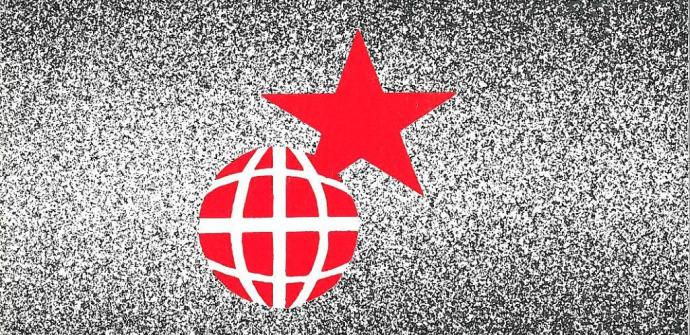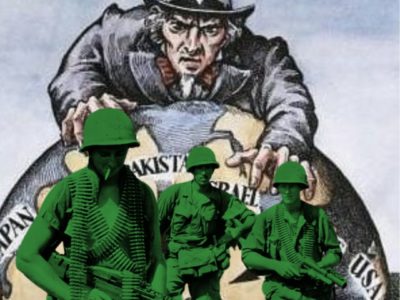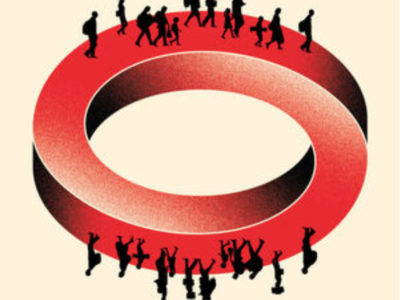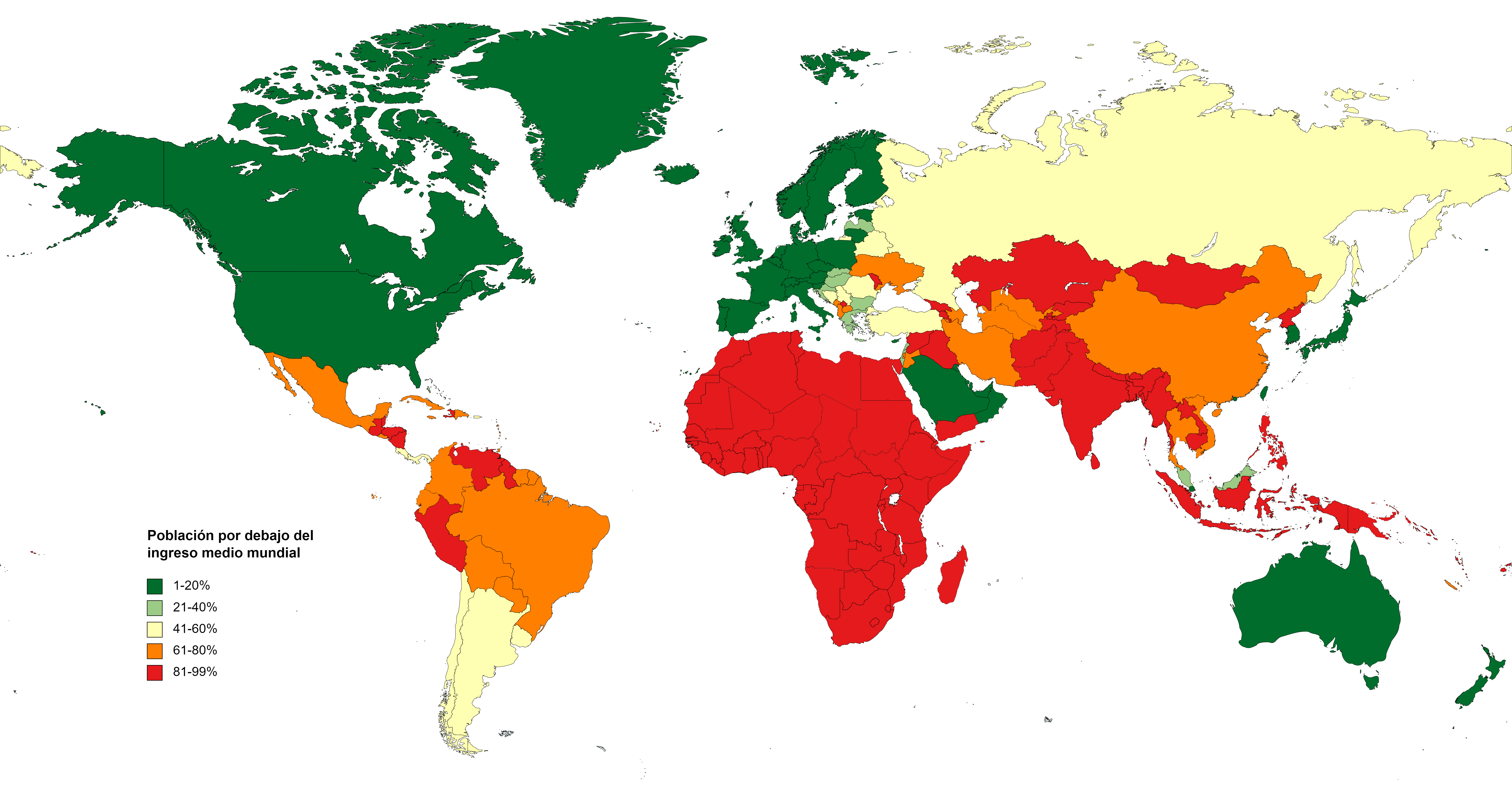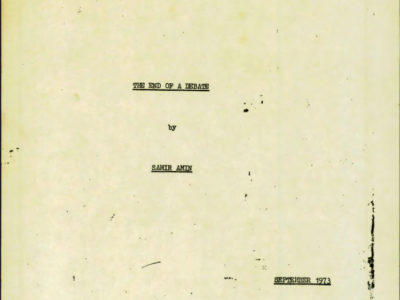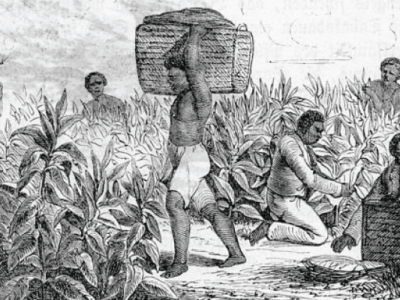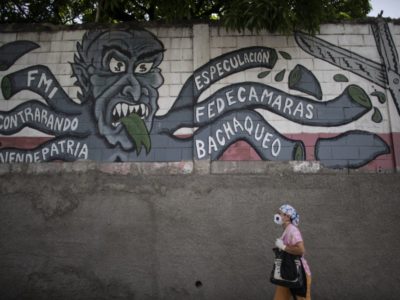This book was written in 1980-1981. The idea behind it was to summarize our economic analysis of global capitalism, outline its political consequences, and present a strategy for anti-imperialist practice in our part of the world.
Our updated version of Lenin´s ‘parasite-state‘ concept was developed already between 1966 and 1970, in a long series of articles written in polemical debate with Swedish and Danish left-wing groups. However, the “parasite-state theory” was not presented in a systematic and comprehensive way. One reason might be that at the time we did not manage to develop the economic foundations of the theory beyond Lenin´s understanding of imperialism from 1916.
In 1975, some of us wanted to update Lenin´s analysis as presented in Imperialism, the Highest Stage of Capitalism. We looked at direct foreign investments and profit rates in the period. Direct investments in the Third World were much lower than direct investments within imperialist countries. Profits from direct investments in the Third World were a little higher (much higher with respect to oil and certain minerals) than from direct investments in imperialist countries, but far from enough to explain the global differences in living conditions. The leader of our organization at the time, Gotfred Appel had had great reservations about adding new theorists to our canon of Marx, Engels, Lenin, and Mao. We were limited by our own dogmatism, so to speak. It was only after a split in the group in 1977, that we were able to update Lenin’s conception of imperialism with the help of the new theories of the 1960s and 1970s developed by people like Wallerstein, Amin, and Emmanuel.
Emmanuel introduced the notion of unequal exchange in his article “Échange inégal et politique de développement” (Unequal Exchange and Development Politics) written together with Charles Bettelheim in 1962. In it, they asked the question: “Must we … enlarge Lenin’s notion of the labour aristocracy, by saying that the working classes of today’s advanced countries constitute the labour aristocracy of the Earth?”[1] In 1969, Emmanuel published his main work Unequal Exchange. Subsequently it was translated into a number of languages and caused much debate. In 1974 we visited Emmanuel in Paris, and he sent the following letter to us:
“I have found your efforts to clarify your position very remarkable. What I admire in particular is your courage, morally and intellectually. I know from my own experience how difficult it is to resist conformism. There are very few passages in your text that I would not sign. … What impressed me most … was the remarkable way in which you clarify that the Marxist notion of the labor aristocracy does not inevitably mean a minority. If Lenin generally (even if not always) wrote about the labor aristocracy as a minority, it simply reflected a historical reality. But there is nothing in the theories of Marx, Engels, Lenin, or any other classical Marxist that limits the ‘aristocratization’ of the proletariat to a certain percentage or minimum of a specific nation. I have written about this previously myself, but I now see that you stated this before I did.”[2]
As noted above, this is not true; Emmanuel was ahead of us.
In 1978, we visited Emmanuel again and established closer contact. There were several reasons why we were inspired by his work. Perhaps most importantly because his understanding of foreign trade and unequal exchange was a direct extension of Marx’s theory of value. Marx had plans to investigate foreign trade more closely in a fourth volume of Capital, but he never got to write it.[3] Emmanuel picked up this loose end. Another reason why Emmanuel appealed to us was his clarity on the political consequences of unequal exchange:
“When however the relative importance of the national exploitation from which a working class suffers through belonging to the proletariat diminishes continually as compared with that from which it benefits through belonging to a privileged nation, a moment comes when the aim of increasing the national income in absolute terms prevails over that of the relative share of one part of the nation over the other. From that point onward, the principle of national solidarity ceases to be challenged in principle, however violent and radical the struggle over the sharing of the cake may be. Thereafter a de facto united front of the workers and capitalists of the well-to-do countries, directed against the poor nations, coexists with an internal trade-union struggle over the sharing of the loot. Under these conditions this trade-union struggle necessarily becomes more and more a sort of settlement of accounts between partners, and it is no accident that in the richest countries, such as the United States—with similar tendencies already apparent in other big capitalist countries—militant trade-union struggle is degenerating first into trade unionism of the classic British type, then into corporatism, and finally into racketeering.”[4]
For us, the notion of unequal exchange provided the most accurate explanation of the economic foundation of the parasite state. We could now formulate a systematic and comprehensive theoretical basis for our anti-imperialist strategy and practice.
The writing of the book was a collective process which took more than a year. I wrote drafts, which were discussed in workshops, and then I rewrote the texts until the final manuscripts were accepted. The manuscript was translated into English and a group of us went to Paris to discuss its contents with Emmanuel.
None of us were academics in social science or economics. Rather, most of us were half or full time activists with temporary jobs to make a living. However, we had extensive political schooling within the group. We wanted to present the theory of unequal exchange in an accessible manner. We wanted to give examples which would relate the theory with practice, showing the implications of unequal exchange and, most importantly, offering a strategy based on our conclusions.
Our contribution was to make the idea of unequal exchange as concrete as possible by providing actual figures for the value transferred from the Third World to the imperialist countries. We developed a method to calculate the size of unequal exchange. I remember spending hours at the university library statistical department, collating information on the numbers of workers in different countries, national wage levels , differences in productivity, and the dimensions and composition of world trade. This was in the days before the internet. We calculated that in 1977 as a result of unequal exchange about US$350 billion was transferred from the Third World to the developed world. We discussed the method with Emmanuel and he was kind enough to write a preface for the book.
We also sent the manuscript to Immanuel Wallerstein. From 1977 to 1980, we spent much time studying capitalism’s origins and the division of the world into center and periphery. We published several articles about it in our magazine Manifest. We were very impressed by Immanuel Wallerstein’s book The Modern World System, in which he describes the birth of capitalism in Europe and colonialism as one process. The fact that he had been working with FRELIMO in Mozambique and written frequently on African liberation movements early in his career was also a qualification from our point of view.
Wallerstein seldom used the term unequal exchange. While Emmanuel focused on the economy, Wallerstein focused on the state:
“The concentration of capital in core zones created both the fiscal base and the political motivation to create relatively strong state-machineries, among whose many capacities was that of ensuring that the state machineries of peripheral zones became or remained relatively weaker.…..Thus did historical capitalism actually create the so-called historical levels of wages which have become so dramatically divergent in different zones of the world-system.”[5]
As a respond to our manuscript, Wallerstein wrote in 1983:[6]
“It represent a very strong presentation of the political implication of the theory of unequal exchange for the left forces in the core/imperialist countries. While I do not share the conclusions in many ways, I believe these are questions, which could benefit from fuller discussion. While there are many works already on unequal exchange, its defenders tend to discuss largely its economical functioning and its detractors its political implications. Your book has the singular virtue of arguing both the economic and the political issues.”
While world systems theory excels in historical, sociological, and political analysis, it lacked at the time, a deeper understanding of economics. Twenty-five years later, Donald A. Clelland, a world systems theorist himself, summarized the problem:
“World-system writers rarely take a stand on the labor theory of value, although the concept of surplus-value, implying acceptance of the labor theory of value, is often casually invoked. … It is my position that world-system analysts should take a distinct position on the labor theory of value, since not to do so is an insult to their own Marxian heritage and since not doing so contributes to the under-theorization of how the world-system works—its mechanisms and processes.”[7]
With regard to the political consequences of the transfer of value from the periphery to the center, Clelland has written the following in an article, which has a reference to our old book:
“Workers who do the same tasks with similar skills and equipment earn hourly wages that differ by as much as a ratio of fifty to one between zones, making the core working class an aristocracy of labor (Communist Working Group 1986). The core worker becomes an unwitting beneficiary of this exploitative system when he/she uses one waged hour to purchase a product that embodies many more lower-waged hours of peripheral labor (Emmanuel 1972)……The distaste for such a suggestion for core radicals and mainstream social scientists probably explains the rather shallow pursuit of the questions of unequal exchange and surplus drain after the passage of a generation of world-system scholarship. If we rediscover the centrality of surplus drain, world-system analysis can become a standpoint historical social science that provides a critique of modern capitalism from the vantage point of the periphery.”[8]
As we could not find a publisher, we published the book ourselves in Danish in 1983 and in English in 1986. (We must have been busy with other things!) In 1987, we sent a copy to Samir Amin, who also was a great source of inspiration. He wrote back:
“I fully appreciate your work, and do share most of it (yet I think you are to “severe” with the western working class) Anyway, I hope we shall have the opportunity to discuss this. I particularly appreciated your estimate of the transfer of value S-N inherent in in the price system. This is really a good piece.”[9]
Now this generation of theorists is almost gone: Emmanuel died in 2001, Amin in 2018, and Wallerstein passed away on 31st of August 2019. However, the political line was not just some “1968-nostalgia”. In 2015, when I began the research for a new book on imperialism, I found out that the perspective was “alive and kicking”. Zak Cope had just published Divided World Divided Class, which in many ways is an updated version of our book.[10] In 2019 Cope has published another book with this line of thinking, The Wealth of (some) Nations.[11]
When I read our old book, today one thing strikes me. It presents the analysis of economic imperialism and the political situation around 1970 rather precisely. However, the book is written ten years later in the beginning of the 1980s when things were already changing. The book does not reflect these changes at all.
From approximately 1965 to 1972 the contradiction: imperialism – anti-imperialism was the principal contradiction in the world system. The anti-imperialist struggle from Vietnam to the Middle East, from Africa to Chile caused serious problems for the US and interacted with local contradictions all over the world. Even I belly of the beast, the anti-war and civil rights movements was creating problems. We imagined that the anti-imperialist struggle would continue and evolve, and that national liberation would result in the establishment of socialist-oriented states which would develop economies to satisfy people’s needs and thus become detached from the capitalist world market. This would cut the suction pipe of imperialism and thereby create a world economic crisis that would put revolution on the agenda, even in the imperialist states. Needless to say, things did not work out that way. The anti-imperialist offensive of the 1960s did not continue in an unabated and continuous course. The opposite aspect of the principal contradiction, ’imperialism‘, evolved and changed character. From the middle of the 1970s, the liberation struggle and the socialist-oriented states of the Third World were put on the defensive. The anti-imperialist aspect of the contradiction was weakened remarkably rapidly during the 1980s, a development our analysis had not anticipated and could not explain.
We had been so preoccupied with the analysis of the “anti-imperialist” aspect and of the functioning and consequences of imperialism in the Third World, that we had overlooked the evolution of the ‘imperialism’ aspect itself. We did not perceive the shift in the relationship between ‘imperialism‘ (or transnational monopoly capital) and the “social national state” in the imperialist countries. Having accepted a division of power and a social compromise with the working class in the imperialist countries capital, in the form of neoliberalism, launched an offensive against the social national state. This special form of state had helped capitalism to solve the economic crises of the 1930s and it had facilitated the development of capitalism in the aftermath of the Second World War. The consumption power of the welfare state guaranteed the realization of the profits made by imperialism as well as the loyalty of the working class in the confrontation with the socialist bloc. However, the social nation state and its control and regulation of the movement of capital, goods, and currency was no longer an asset but turning into a problem for burgeoning transnational capital by the 1980s. The bulwark of the nation state against the forces of the world market was becoming an intolerable barrier for the development of a more globalized capitalism.
The contradiction ‘imperialism-anti-imperialism’ as well as the contradiction ‘imperialism-the socialist bloc‘ were important contradictions in the post-war period up until the mid-1970s. However, from this point on, the principal contradiction became that between the transnational corporations and the social nation state. The struggle between these two contradictory aspects first took place in the imperialist centre, in the form of capital’s offensive against state regulation, taxes, public enterprise, and the trade union movement as led by Ronald Reagan in the United States and Margaret Thatcher in England. The social state was turned into the neoliberal state based on policies which could best facilitate transnational capital. The nation state was turned into a conveyer belt of market forces in and out of states which spread neoliberalism across the globe. It was neoliberal policies that enabled the outsourcing of industry from North to South and thus a globalization of production and the tremendous growth of financial capital.
We had underestimated the strength of transnational monopoly capital in relation to the working class in North America and Western Europe, and thus the ability of capital to free itself from the control and regulation of the nation state. We had not foreseen the exponential growth of financial capital and the globalization of production that made new forms of imperialism possible. This lack of attention to the breakthrough of neoliberalism caused us to overstate the importance and strength of the antiimperialist struggle and the socialist countries. With neoliberal government in power in the US and EU, it was relatively easily for imperialism to shut the mouth of those who demanded a “new economic world order”. The neoliberal world order in the Third World was based on “structural adjustment”, that is, the abolition of regulation of investment and trade and the privatization of public companies. Meanwhile, the socialist bloc was in disarray, faced with the economic and military pressures of neoliberalism. Even China had to open up for investments of transnational corporations and the world market, the alternative being a collapse as in the Soviet Union or becoming alone and isolated in a hostile world as with North Korea.
“The owl of Minerva spreads its wings only with the falling of the dusk” as Hegel wrote.[12] It was only when neoliberalism was fully established that we could properly understand what was going on.
At the time, neoliberal discourse became so dominant that it proclaimed “the end of history”. Liberal capitalism would conquer the entire globe and would go on indefinitely. On the left wing, Tony Negri and Michael Hardt believed that globalization would be the end of the national state and the development of one global “Empire”. However, again, as we have seen – but often forget – the world does not move continually. The contradictions in neoliberalism are evolving,, intensifying, and creating profound changes not gradually, but in leaps and bounds. The consequences of neoliberalism and globalization, have resulted in new class struggles that have changed the balance of power between transnational capital and the nation state. Right wing nationalist populism in cooperation with national conservative trends in capitalism, cast rubble in the machine of global neoliberalism, in an attempt to rebuild a strong national state.
This development adds a political crisis to the economic and ecological crises of neoliberalism. It does not directly strengthen anti-imperialism, but it creates a window for change, if we manage to mobilize and organize ourselves.
Torkil Lauesen 14.1.2020
- . Arghiri Emmanuel & Charles Bettelheim, 1962. Échange inégal et politique de développement, Problèmes de planification, No. 2, Sorbonne: Centre d’Étude de Planification Socialiste. ↑
- .Private letter dated 15.3.1974. ↑
- .In the introduction to A Contribution to the Critique of Political Economy, Marx wrote: “I examine the system of bourgeois economy in the following order: capital, landed property, wage-labour; the State, foreign trade, world market.” (Karl Marx, Preface. A Contribution to the Critique of Political Economy. Moscow: Progress Publishers, 1977.) ↑
- .Arghiri Emmanuel, Unequal Exchange: A Study of the Imperialism of Trade. New York & London: Monthly Review Press (1972), pp. 180–181; see also Arghiri Emmanuel and Charles Bettleheim (1970), “International Solidarity of Workers: Two Views: The Delusions of Internationalism; Economic Inequality Between Nations and International Solidarity.” Monthly Review, vol. 22, no. 2 (June 1970), pp. 13–24. ↑
- . Immanuel Wallerstein, Historical Capitalism, with Capitalist Civilization. London: Verso (1995), p. 32. ↑
- Private letter dated 11.4. 1983 ↑
- . Donald A. Clelland, “Surplus Drain Versus the Labor Theory of Value,” p. 1 ↑
- . Donald A. Clelland, “Surplus Drain and Dark Value in the Modern World-System.” In: Babones, Salvatore J. and Christopher Chase-Dunn (eds.), Handbook of World-Systems Analysis. London: Routledge (2012), pp. 203–4. ↑
- Private letter dated 20. January 1987 Dakar ↑
- Cope, Zak (2015), Divided World Divided Class. Global Political Economy and the Stratification of Labour Under Capitalism. Montreal: Kersplebedeb, 2015. ↑
- Cope Zak (2019), The Wealth of (some) Nations. Pluto press. London 2019. ↑
-
Minerva is the Greek Goddess of Wisdom.
Hegel, GWF (1820) Philosophy of Right, “Preface”. marxists.org/reference/archive/hegel/works/pr/philosophy-of-right.pdf ↑

